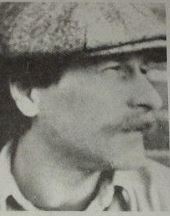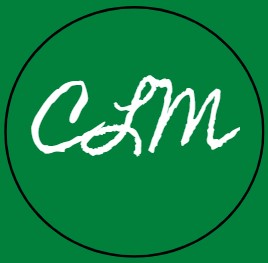Rhodesian Doll Hunt: Chapter 28

Travis: The Selous Scout
It was late afternoon. Travis had been blindfolded, shoved into a helicopter, and dropped into the bush with a knife, a single match, and an egg. “Enjoy your breakfast, mate. If you can find your way back to the camp by midnight of the third night, you can finish your training.” The helicopter pulled away, flying low and surely in the wrong direction as it wove back to the Selous Scouts training camp located on the eastern shore of Lake Kariba.
Sipho had briefed Travis on Wafa Wafa Wasara Wasara, the feral proving ground where recruits who sought the chocolate brown beret, green belt, and osprey emblem of the Selous Scouts were dehumanized, stripped of integrity, and rebuilt from their claws inward. The name is Shona for “Who dies—dies; Who survives—remains.” Only one in eight survives the rigors of training. They become part of the most feared bush unit in the world, known for infiltrating tribal groups, gathering intelligence, and inflicting pernicious harm on their opposition.
Travis dropped to one knee and slid his knife into the soil. Dry. Coarse with a powdery topcoat. Patience. Don’t just start walking randomly. He measured the surroundings. Sparse camel thorn trees, bitter scrub, and sporadic indigo, all vegetation with roots that plunge fifteen feet into the soil. Travis popped a couple of stitches inside his khaki shorts—he’d sewn the pen-monocular that Sipho gave him into the cloth backing of the zipper. Even with the monocular, he could barely detect the shadow of a tree line to the east. To the distant north was a rise of table land. Trees mean water, food—survival. Elevation provides perspective—direction. The choice was clear. Find the lake. Find the camp.
Travis walked north, toward the tableland. He pulled up his shirt to shield his face from a sun that bore in sharply from the northwest. A moderate wind agitated the chalky topsoil, which caked his nose hair and beard like metal shavings on a magnet. Unpleasant annoyances. Water was his priority; eyes in constant motion as he walked, searching for animal tracks, dry streambeds, clusterleaf trees and other shallow rooted vegetation. A baobab tree would have water between the corky bark and the meat of the tree. Unbroken concentration was needed, but concentration induces fatigue. An hour passed. Three. Chalk in his teeth now.
The sun dropped. Travis spotted the fingers of a bi! bulb plant writhing from the soil. Then another. He dug beneath the growth, pulled up a volleyball-sized bulb, cut it open and shaved the white, fleshy scales with his knife, creating a mound of spongy tissue. He rolled the flesh into a ball, held it over his mouth and squeezed. Water. He drained several balls into his mouth and then used the damp sponges to wipe his face, neck, and arms.
The land rise was hours away and the sun was setting. There was no moon in sight. Travis cut a bundle of dried grass and settled on top of it between giant clumps of savanna grass. The match remained dry in his pocket as he slept. In the morning, he tapped a hole the size of a dime into the top of the egg and drank the uncooked yolk and albumin. Ripping a strip of cloth from the bottom of his shirt, he made a sling to carry a bi! bulb.
After seven hours he reached the base of the tableland. He climbed. A blister had formed on the tip of his nose. Exertion and lack of glucose brought hunger, not as pain but as a clammy syncope of fever, perspiration, mild hallucinations, and disquietude. He thought of his father, a longshoreman who made him unload cod with bare, frozen hands in the dead of winter at the age of twelve. He had to learn toughness, his father told him. A father who died at the age of fifty-one, forcing Travis to dissect shards of love from a mountain of gruff authoritarianism.
Shit, it’s barely been twenty-four hours, he thought. Unapologetic pangs of hunger. Attention shifted to edibility testing: smell test, skin test, mouth test, swallow test, eat. By the time Travis reached the top of the ridge, the sun had set. Night number two, heart fluttering cold. He looked for a place to make fire and found a lone baobab tree nestled in a sheltered col. He gathered branches and scrub and used his match. Once the fire matured, Travis used the husk of the bi! bulb to cook spinach made from leaves of the baobab. Then he extracted nuts from the cream-colored pulp of the hardened reproductive pods. Travis slept, warm, hydrated, and fed.
Dawn was critical. He couldn’t see the lake, but the cool morning air had created a bank of steam fog in the distance. Three birds flew in the direction of the haze—a haze he knew would disappear as soon as the sun warmed the air. Fog, fed by water. Birds flying toward it. He’d established his direction and walked. Around noon he found an African mangosteen tree and ate. The density of vegetation increased. He reached the lake in the late afternoon.
Travis searched the shore and found a washed-up dinghy. He paddled hundreds of yards offshore and waited for dusk. As the sun set, a swirl of smoke rose from behind an extended peninsular to the northeast. Scouts cooking high tea . . . dinner. Two hours of paddling brought him to the camp. A scout saw him and grunted whoop-whoop. Travis raised an oar and waved it over his head. The other scouts broke into a haunting chant, “Selousi shumbi. Selousi shumbi.”
A night of rest was followed by two-and-a-half weeks of abusive strength and fitness tests designed to probe for weaknesses. Next came combative sessions and exercises meant to catechize a warrior mindset. The commander conducted drills in fast roping, high and low freefall techniques, and helocasting—jumping from a helicopter into water. Given his expertise, Travis was asked to assist in a session on explosive breaching techniques. After completing a hundred-kilometer endurance march with heavy cargo, he was officially a Selous Scout.
He went on patrol with a small band of scouts, shadowed their moves, learned their swagger and code of conduct. The scouts had informants in the villages: Black Ndebele or Shona who accepted payments that would help their families. They interrogated villagers. At one point they shot two men in front of their families. Mothers screamed. Neighbors ran. While on patrol near Chirundu, a group of four women displayed their identity tags to the scouts. One woman carried an infant on her back. The scouts shot the women, claiming they were transporting contraband—illegal newspapers, flyers, magazines—but their bravado and hoots convinced Travis it was done for sport. I swear they are doing it just to impress me. Is that possible?
“Was that necessary?” he asked the lead scout.
“When White people were under siege in Bulawayo, Cecil Rhodes told his men to do the most harm to the natives around them. He called them the White man’s burden, told them to kill everyone they can, even those who drop their guns and beg for mercy. News travels. Their resolve in this war will diminish, yah?”
Two women died immediately. The other two shimmied on the ground, ashen cheeks of panic, staring into the eyes of their assailant; eyes infected with the joyous tears of Satan. The lead scout walked to one of the women, placed his rifle to her head and fired through it, into the ground. Travis didn’t flinch. The second woman screamed. She bellied toward the stream, perhaps thinking it could carry her away. The commander held her neck down with his foot, drew a pistol, and held it her temple, horizontal to the ground. He fired. Travis saw a man who was having fun watching bone and brain fragments spurt from the exit wound.
They turned to leave. Travis saw the baby. “It’s still alive.”
A scout removed the baby from its mother’s pouch and held it upside down by the legs, like a chicken. “We don’t want this Jim Fish to come back to haunt us. Let’s let the tiger fish have a go at him.” He tossed the baby into the river but was compassionate enough to whack its head against a boulder before doing so.
Travis struggled to remember his role. Get information. Report it to Sipho. He willed himself to contain his emotional suffocation. This was not war. It was imperious butchery intended to intimidate. To impose fear. Travis supervised his words, forcing them to express things that were in conflict with his instincts. “They’ll have a good feed today, mate.” Vomit filled his brain.
